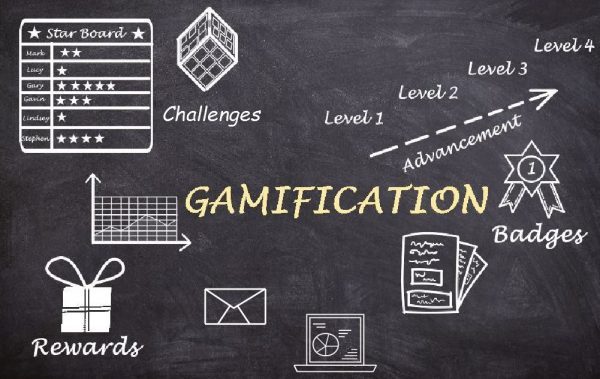In Module 5, we were to develop at least nine interview questions to elicit the interviewee’s understanding of cultural intelligence and self-evaluation of their own cultural intelligence. The readings provided us with definitions of cultural intelligence, an issue of global understanding and social justice, as well as a cultural intelligence scale, and an abbreviated checklist. While we could rely on those materials, we needed to develop our own interview questions, with the goal of learning how an interviewee defines cultural intelligence and evaluates their own cultural intelligence.
I was paired with one of my classmates, and I was to conduct an interview with my questions. Ultimately, each person had the chance to conduct an interview and get data based on their interview questions.
My task was then to write up the interview, outlining the responses that I received. In addition, I was to add a concluding paragraph considering how effective my interview questions were in getting the information that I was seeking and what I might do to revise them. Critiquing our own interview questions did not result in a negative evaluation; rather the goal was to consider the best way to write interview questions.
The submission was to be two pages, double-spaced, excluding the title page, and no abstract in this assignment.

Exploring Culture Intelligence: Interview and Evaluation
Frank Jamison
The Chicago School of Professional Psychology
EP746: Culture’s Place in Learning and Technology
Dr. Kate Green
November 27, 2022
In preparing for this interview, I used information from Dr. Kriukow’s (Kriukow, 2022) online course, Planning and Conducting Qualitative Interviews. The interview guide consists mainly of original questions, though some have been modified from Ang et al.’s (Ang et al., 2009) Cultural Intelligence Scale (CQS) Self-Report. The questions this interview hopes to answer are:
1. What is the interviewee’s understanding of Cultural Intelligence?
2. How does the interviewee evaluate their own Cultural Intelligence?
The interviewee is fellow student Kristena R. The interview was conducted at 6:30 p.m. on November 25, 2022. The interview is outlined below:
Q1: How would you define “Culture?”
A1: Kristena stated she looks at race, ethnicity, background information, body language, and the norms of different places when defining culture.
Q2: What comes to mind when you hear the term “Cultural Intelligence”?
A2: Kristena answered that what comes to mind when hearing the term “Cultural Intelligence” is the understanding of different cultures and the way they interact.
Q3: Can you tell me about a time when you interacted with people from another culture?
A3: Kristena recalled a time when she went to a Hawaiian cultural festival, stating that it was “different.”
Q4: How did you feel while interacting with those people?
A4: Kristena stated that at first, it was difficult, but after a while, it became fun. The first initial reaction was being uncomfortable.
Q5: Looking back on this experience, did you change your verbal or non-verbal behaviors due to cultural differences?
A5: Kristena stated she did change her behavior due to cultural differences.
Q6: If you did modify your behaviors, what did you change and why?
A6: Kristena stated that she becomes more introverted when she encounters a language barrier. In those situations, she crosses her arms and tries to fade into the background. In this situation, she smiled more and tried to be more open, blending in with the culture and trying to be part of the fun.
Q7: In hindsight, do you think there is anything that could have been done differently to enhance the interaction?
A7: Kristena stated that she should have researched the culture before she went so that she could have been more comfortable with the situation.
Q8: Do you think this interaction is a good indicator of your overall cultural intelligence?
A8: Kristena answered no.
Q9: Why not?
A9: Kristena feels she has more cultural intelligence than this experience indicates, as she has been exposed to many different cultures. She also feels she has an “ok” understanding of what to do in multicultural situations.
Overall, questions 2 and 8 directly answer the two questions the interview is trying to discover. I feel a couple of the questions could have been combined, such as questions 5 and 6, as well as questions 8 and 9. I think question 4 should be reworded to “How did you feel while interacting with those people and why?” This would elicit a more detailed response and get the interviewee thinking more about the experience. I forgot to ask the question, “How well do you think you handled the interaction?” I think including that question will also get the interviewee to analyze the situation a bit better.
References
Ang, S., Van Dyne, L., and Koh, C. (2009). Appendix A: Cultural Intelligence Scale (CQS) Self-Report. In L. Van Dyne (Ed.) and Ang, S. (Ed.), Handbook of Cultural Intelligence: Theory, Measurement, and Applications (p. 389). Taylor & Francis Group.
Kriukow, J. (2022). Developing the Interview Guide. Planning and Conducting Qualitative Interviews. Retrieved November 23, 2022, from https://www.udemy.com/course/how-to-do-qualitative-interviews/learn/lecture/18919464.
Assignment Grade: 40/40



